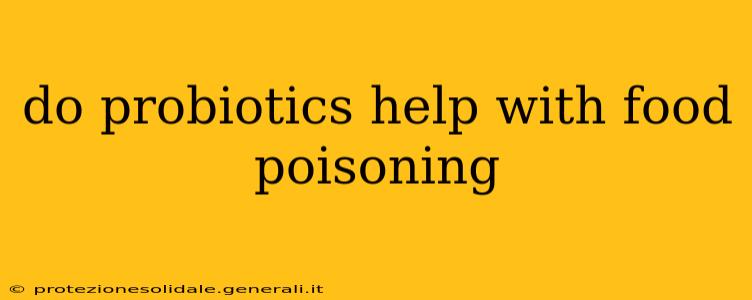Do Probiotics Help with Food Poisoning?
Food poisoning, a distressing experience characterized by nausea, vomiting, diarrhea, and abdominal cramps, is often caused by consuming contaminated food or drink. While the symptoms are unpleasant and can be debilitating, most cases resolve on their own within a few days. But what about using probiotics as a treatment or preventative measure? The answer is nuanced and requires understanding the different types of food poisoning and how probiotics work.
What are Probiotics and How Do They Work?
Probiotics are live microorganisms, primarily bacteria, that, when consumed in adequate amounts, confer a health benefit on the host. Think of them as beneficial bacteria that help maintain a healthy balance in your gut microbiome – the trillions of bacteria, fungi, and other microbes living in your digestive tract. These beneficial bacteria play vital roles in digestion, nutrient absorption, and immune function. Different strains of probiotics have different effects, and some are more effective for specific conditions than others.
Can Probiotics Prevent Food Poisoning?
While probiotics aren't a guaranteed preventative measure against all types of food poisoning, some research suggests they might offer some protection. The idea is that a healthy gut microbiome, fostered by regular probiotic consumption, can help compete with harmful bacteria, reducing their ability to establish themselves and cause illness. However, it's crucial to understand that this is not a foolproof method. Probiotics may be more effective in preventing milder forms of food poisoning caused by less virulent bacteria. They are unlikely to offer much protection against severe food poisoning caused by highly toxic bacteria or other pathogens.
Can Probiotics Help Treat Food Poisoning?
This is a more complex question. While probiotics won't cure food poisoning directly, some research hints they may help alleviate symptoms and shorten the duration of illness. Several studies suggest specific probiotic strains can reduce the severity and duration of diarrhea associated with certain types of food poisoning. Again, this is not a guaranteed outcome, and the effectiveness depends greatly on the type of pathogen causing the illness and the specific probiotic strain used.
What Kinds of Food Poisoning Are Probiotics Most Likely to Help With?
Probiotics may be most beneficial for food poisoning caused by less severe bacterial infections, such as those caused by E. coli strains that don't produce toxins (enterotoxins). However, they are less likely to be effective against food poisoning caused by highly toxic bacteria like Salmonella or Staphylococcus aureus.
What Probiotic Strains Are Commonly Studied for Food Poisoning?
Several strains have shown promise in studies, including Lactobacillus rhamnosus, Lactobacillus casei, and Saccharomyces boulardii (a yeast, not a bacteria, but often included in probiotic discussions). It's important to note that research is ongoing, and more studies are needed to confirm these findings.
What Are the Risks of Using Probiotics for Food Poisoning?
Generally, probiotics are considered safe for most people. However, some individuals, particularly those with weakened immune systems or pre-existing medical conditions, might experience side effects like gas, bloating, or diarrhea. It’s crucial to consult a doctor before using probiotics, especially during a bout of food poisoning.
When Should You Seek Medical Attention for Food Poisoning?
While many cases of food poisoning resolve on their own, it's vital to seek medical attention if you experience:
- Severe dehydration: Signs include excessive thirst, dizziness, or decreased urination.
- High fever: A temperature above 101.5°F (38.6°C).
- Bloody diarrhea: This can indicate a more serious infection.
- Prolonged symptoms: Symptoms lasting longer than a few days.
- Signs of severe illness: Intense abdominal pain, confusion, or difficulty breathing.
In conclusion, while probiotics may offer some benefits in preventing or alleviating milder forms of food poisoning, they are not a replacement for proper food hygiene and prompt medical attention when necessary. Always prioritize safe food handling practices and consult a healthcare professional for diagnosis and treatment of food poisoning. The information provided here is for educational purposes and should not be considered medical advice.
